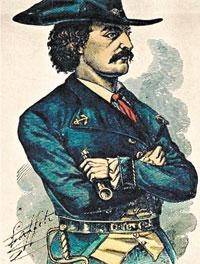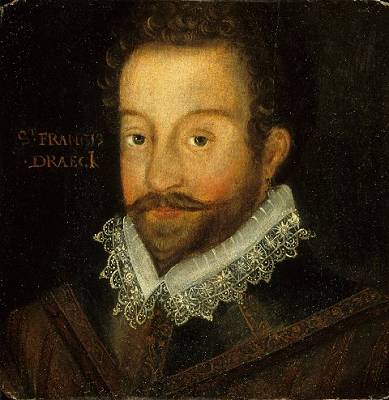Headlines
Scruggs On History – Pirates and Privateers
In my recent article on the Battle of New Orleans, I called Jean Lafitte a “pirate.”
Lafitte would have taken issue with that tag, and he would have had a point. Instead of a “pirate,” I suspect that Lafitte would have called himself a “privateer.” As you will see, the difference is more than semantic.
Although pirates and privateers did much the same thing — they both preyed on vulnerable merchant shipping — their legal status was significantly different. Pirates were considered outlaws, to be hanged on the spot when captured. Privateers, on the other hand, enjoyed the protection of government-issued “letters of marque” (pronounced “mark”). By tradition and convention, they were entitled to be treated as prisoners-of-war when apprehended.
Thus were enterprising adventurers (and occasional pirates like Lafitte) conveniently transformed into naval auxiliaries, deputized to seize the merchant vessels of hostile powers. For their trouble, the privateers were entitled to split the spoils of their depredations with their sponsoring government. Almost every maritime nation has at one time or another exploited the letter of marque to enhance its navy on the cheap. There’s even a provision in the US Constitution authorizing Congress to issue letters of marque.
The most famous and successful of all privateers was Sir Francis Drake, whom history credits for laying the foundation for the British Empire. Beginning modestly in the late 1500s, Drake was an ordinary sea captain engaged in trans-Atlantic trading of goods and slaves. After narrowly escaping death in a Spanish ambush in Panama, Drake embarked on a vengeful (and piratical) campaign against Spanish treasure ships and their ports in the New World. One raid on a Spanish treasure caravan crossing the Isthmus of Panama netted Drake enough gold and silver to nearly sink his ship.
Queen Elizabeth was so impressed when Drake returned to England that she secretly gave Drake a letter of marque and five ships to find a sea passage to the Pacific around the treacherous capes of South America, and then to raid Spanish shipping on the undefended coasts of Peru and Panama. At the time, the existence of the Straight of Magellan was a closely guarded Spanish secret. Drake’s expedition was cloaked in equal secrecy, since England and Spain were not actually at war, and revelation of Drake’s mission would have caused one.
Drake succeeded in finding his way through the straight into the Pacific, where he had his way with the surprised and defenseless Spanish.Then, rather than run a gauntlet of aroused Spanish ships belatedly guarding the Straight of Magellan, Drake returned to England by sailing west across the Pacific, becoming the second man (after Magellan) to circumnavigate the globe.
As a result Drake got his knighthood, and Elizabeth got her war chest. And the Spanish — they got mad, and launched the Spanish Armada to emasculate the likes of Drake and English naval power, and to invade and subject England once and for all to Catholic rule from Spain. The Armada ended in fiasco, as weather and the English navy — led by none other than now-Admiral Sir Francis Drake — destroyed the Spanish fleet in the English Channel.
For me, men like Drake and Lafitte have always held a special fascination. Our world, I think, would be an awfully dull place but for colorful characters like these two.
Dick Scruggs writes about history for HottyToddy.com. Before going to federal prison for a bribery conspiracy, Scruggs was recognized as one of the country’s leading trial lawyers. He and Attorney General Mike Moore led the successful legal assault on the Tobacco Industry that resulted in a $250 billion settlement for the states’ costs treating sick smokers. Scruggs is a former Navy fighter pilot who obtained his undergraduate and law degrees from Ole Miss. He and his wife Diane have contributed heavily to the University, and now make their home in Oxford. Scruggs has been a longtime student of military history, and is a HottyToddy.com contributor.



































Fort Nehalem
June 18, 2014 at 11:37 am
Magellan died on the voyage. Only one of his ships returned without him. Drake was the first to circumnavigate as ‘captain’ of a ship.